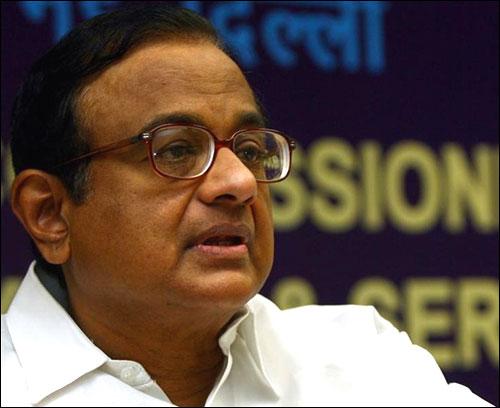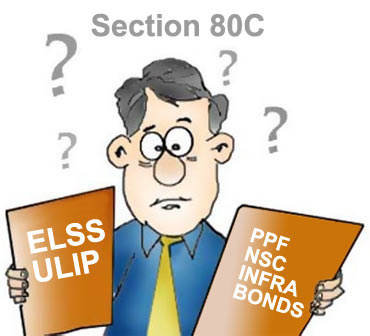 | « Back to article | Print this article |
Dear FM, please HIKE 80C exemption to Rs 3 lakh!
And here's why P Chidambaram must do it, argues Alok Patnia of TaxMantra.com
Before introduction of section 80C in the Finance Act 2005, Section 88 provided exemption to investors. However, Section 88 was replaced by the Finance Act 2005 when it came into effect since April 1, 2006.
While there was no flat deduction of Rs 100,000 u/s 88, it allowed a rebate of 20 per cent on the amount individuals invested.
For example if someone had invested Rs 50,000, s/he used to get Rs 10,000 as tax rebate under section 88. Under Section 88, the overall limit of investment was Rs 60,000 and an additional Rs 10,000 for investment in power, telecom and infra sector.
While Section 80C increased the exemption limit tto Rs 100,000 under, this deduction limit is flat for every taxpayer and no distinction is made between assessees who fit into different tax slabs.
Nevertheless, section 80C has become one of the most powerful and popular section in the entire Income Tax Act 1961, mainly because the eligible assessees under section 80C are individual tax payerers and HUFs.
Please click NEXT to read more

Dear FM, please HIKE 80C exemption to Rs 3 lakh!
Eligible instruments under Section 80C:
- The most commonly used eligible instruments towards Section 80C deductions are:
- Life insurance premium, including premium for a unit-linked insurance plan (ULIP)
- Contribution to Public Provident Fund or Provident Fund
- Investment in pension plans
- Investment in Equity Linked Savings Schemes (ELSS) of mutual funds
- Home loan principal repayment
- Investment in Infrastructure Bonds, National Savings Certificates
- Payment of tuition fees to for full-time education of any 2 children of an individual
- Fixed deposit with any scheduled bank or post office for 5 years
- Senior citizens savings scheme
Please click NEXT to read more
Dear FM, please HIKE 80C exemption to Rs 3 lakh!
Section particulars: Maximum Deduction under Section 80C
- Life insurance premium on life policy(): (Maximum premium eligible limited to 20 per cent of sum assured)
- Contribution to statutory or recognised provident fund
- Contribution to 15 year PPF (public provident fund) (): (Maximum Rs 70,000... later was hiked to Rs 100,000)
- NSC VIII issue (Including accrued interest for first five years)
- Contribution to ULIP of UTI or LIC mutual fund
- Contribution to notified units of mutual fund or UTI
- Contribution to notified pension fund set up by mutual fund or UTI,
- Tuition fees paid to university, college or educational institutes for maximum 2 children for full time education. (Excluding development fees, donation etc.)
- Payment towards purchase or construction of residential house property including repayment of loan taken for the same
- Investment in approved debentures or equity shares of public company or units of mutual funds, engaged in infrastructure development
- Subscription to notified bond of NABARD
- Fixed deposit for 5 or more years in scheduled banks in accordance with the scheme framed and notified by the Central Govt
- Deposit in senior citizens saving scheme
- Deposit in 5 year time deposit scheme in post office
Please click NEXT to read more
Dear FM, please HIKE 80C exemption to Rs 3 lakh!
Why then should the limit be hiked to Rs 300,000?
The number of investments that are eligible for deduction from taxable income under Section 80C are many but the overall limit is only Rs 100,000 which is just not enough.
For many professionals, this limit is exhausted by investments like EPF, life insurance premia and the principal component of a home loan.
There is very little scope of saving tax through other investments like ELSS, PPF, bonds etc.
Please click NEXT to read more
Dear FM, please HIKE 80C exemption to Rs 3 lakh!
Income from house property is one of the important heads of income under the Income Tax Act. The taxpayers have been, in particular, keen to know about the exemption and deductions available to them on repayment of interest and principal of the loan obtained to purchase the house property, if that house property is let out or self-occupied.
According to individuals the limit should be enhanced to Rs 300,000 or the treatment of principal component of housing loan should be separated from treatment of deduction u/s 80C.
Please click NEXT to read more
Dear FM, please HIKE 80C exemption to Rs 3 lakh!
With a constant decline in the percentage of individual savings, it is expected that the exemption limit available under section 80C be enhanced to Rs 3 lakh from the current limit of Rs 1 lakh, to boost savings.
This can be done by introducing a separate limit of Rs 2 lakh for specified long-term investments such as life insurance and annuity, investments in Rajiv Gandhi Equity Savings Scheme and employee contribution to New Pension Scheme, within the ambit of section 80C.
Please click NEXT to read more
Dear FM, please HIKE 80C exemption to Rs 3 lakh!
With increasing financial literacy, investors have started investing in mutual funds. ELSS was one of the routes and the reason people started investing in mutual fund. Also the Nifty and Sensex gave annual return of around 26 per cent in calendar year 2012. So, this can attract investors to invest in equity market.
I feel instead of continuing RGESS, if the deduction under 80C is increased, people may invest more in ELSS funds, since ELSS is the only scheme u/s 80C which has shortest lock-in period and can provide highest return in the long term.
Please click NEXT to read more
Dear FM, please HIKE 80C exemption to Rs 3 lakh!
The EPF is a scheme intended to help employees from both private and non-pensionable public sectors save a fraction of their salary every month in a savings scheme, to be used in an event that the employee is temporarily or no longer fit to work or upon retirement.
An employee can withdraw full amount from the fund on retirement from service after attaining the age of 55 years.
EPF is automatically deducted from salary. Both employee and employer contribute to it. Employee's contribution is counted towards Section 80C investments.
Employees also have the option to contribute additional amounts through voluntary contributions (VPF).
Also, after increase in the limit in maximum amount of deposit in Public Provident Fund (PPF) to Rs 1 lakh and with current rate of interest at 8.8 per cent per annum, conservative investors are willing to invest more in PPF for taking the benefit by investing in PPF.
Please click NEXT to read more
Dear FM, please HIKE 80C exemption to Rs 3 lakh!
The education cost is also increasing day-by-day. People must benefit from the deduction as education expenses (school fees) for their children is very high. So the available deduction under 80C must increase.
Please click NEXT to read more
Dear FM, please HIKE 80C exemption to Rs 3 lakh!
We have seen real-estate prices have risen. Since the prices of residential houses have increased, so has the amount of home loans people are taking.
So eventually, the principal amount, which is being repaid, has also increased. Also the increasing stamp duty and registration cost due to increase in real estate prices can be availed for deduction.









